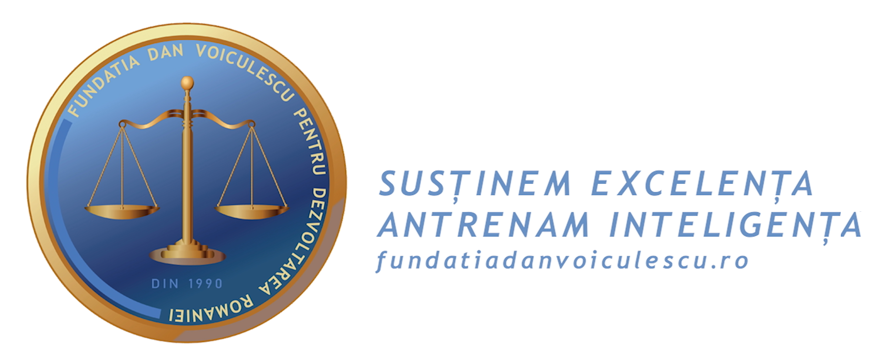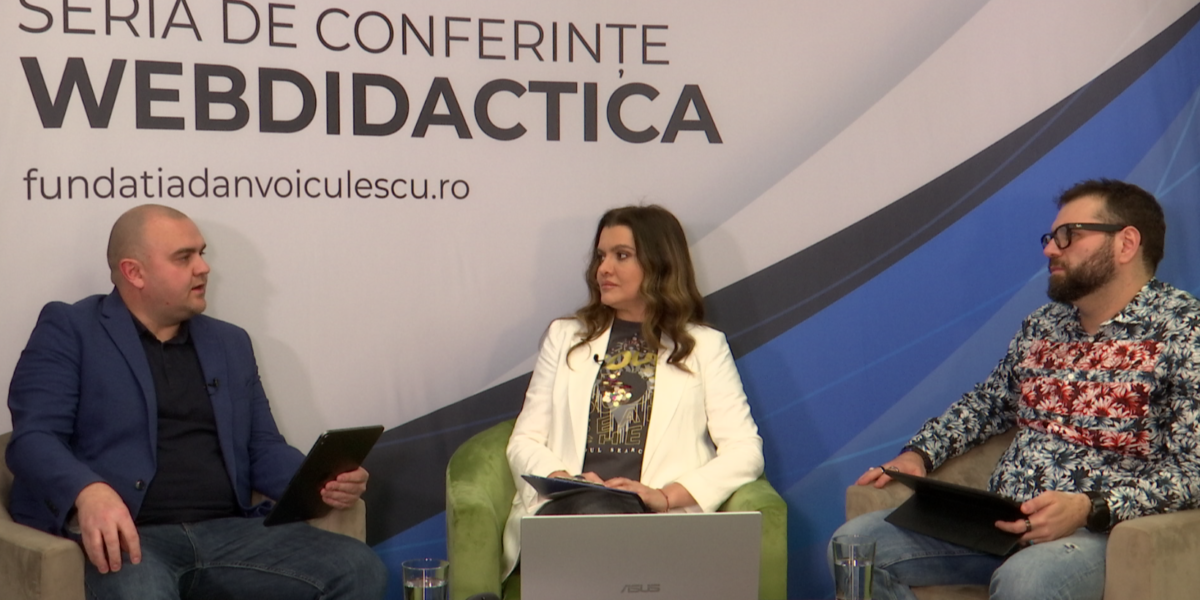In an ever-changing world, education needs to keep pace with technological change in order to prepare students and teachers for the future. In this context, the WEBDIDACTICA Conference "Integrating Technology into Lessons in the School of the Future", organised by Dan Voiculescu Foundation for the Development of Romania, brought together speakers who brought to the attention of teachers, researchers, but also parents, current issues concerning new technologies integrated into the teaching-learning process, as well as innovative perspectives that can develop the School of the Future. Speakers highlighted the extraordinary potential of technology to personalise and adapt the learning experience, and the need for a responsible and ethical approach to its use in schools. Furthermore, they emphasised equal opportunities - the use of technology in both urban and rural areas by boys and girls, and by students with special needs.
The impact of technology on the teaching-learning process was a central focus of the conference. Alin Chiriac, Founder of ADFABER, explored how new technologies can revolutionise traditional ways of teaching, providing educators with innovative tools and resources to support student learning and development in the digital age. Moreover, it also focused on the image of the School of the Future.
„What does the School of the Future look like? I imagine that in the School of the Future the teacher has a bit more time for themselves. Especially in areas where the teacher does everything and has a lot on his or her plate, in order to ensure equal opportunities for those students, perhaps from disadvantaged backgrounds, a virtual assistant to help the teacher is essential. I encourage teachers to give their children access, to guide them towards technology. A teacher who manages to integrate technology into the classroom certainly wins this battle for children's attention and children will see a thought leader in him or her. Technology certainly helps teachers to make a precise education", says Alin Chiriac, Founder of ADFABER.
The introduction of the Virtual Assistant in personalised learning was proposed by Romanian computer scientist and inventor Ionuț Budișteanu. In this context, the Chat GPT is the tool every teacher needs.
"It can identify concepts that have emerged recently, new topics of interest that will captivate students. For example in computer science or all sorts of new concepts. Explaining concepts, for example maths problems - how they can be explained easily, with real application. I can actually ask Chat GPT how a certain theory, a certain concept can be explained and then the teacher realizes: look what an interesting idea he said and I could explain it to them, maybe a little better for the students", Ionuț Budișteanu said.
The challenges and threats of using ChatGPT in education were reviewed by 24IT producer Laurențiu Matache. With the obvious advantages of artificial intelligence applied in learning support, he stressed the importance of managing this tool correctly, including protecting student data and ensuring a safe and responsible learning environment.
"The first benefit I identified with Chat GPT is that it gives you quick access to information. Students ask a question and instantly get an answer. We can tell them to adapt the language to our understanding. What's more, students with attention deficits can now find all the information they need in one place, targeted, synthesised," said Laurențiu Matache, the producer of TV 24 IT.
Education technology expert Danut Eremenco explored current trends in technology and how they can be creatively integrated into the school curriculum. Moreover, the expert appreciated the urgent need to adapt education to the digital age we live in.
"In the evolving landscape of education, the importance of digital learning has become increasingly evident and important. Classrooms are making way for a more dynamic and accessible approach - digital education - this change is not just a trend, it is a necessity reshaping the way we learn and prepare for the future. But this will not be possible without the right tools and resources. No matter how good the strategy and methodology, without technologies tailored to real needs in education, we will not be able to reach our potential," said education technology expert Danut Eremenco.
In addition, effective techniques for motivating students in the digital age were presented and discussed. Psychologist and education expert, Gabriela Maalouf brought to the discussion strategies and practices to stimulate student engagement and interest in learning, using technology as a catalyst for increased academic performance and creativity.
The WEBDIDACTICA conference "Integrating Technology into Lessons in the School of the Future" highlighted the need for a balanced and well thought out approach to the use of technology in schools, considering both the opportunities and challenges that this digital transformation brings to education. At yesterday's event, 8 February, it was announced that entries to the national School of the Future competition have been extended until 15 March.
The WEBDIDACTICA conference series is a project of Dan Voiculescu Foundation for the Development of Romania, dedicated to supporting teachers, parents and other education professionals.

